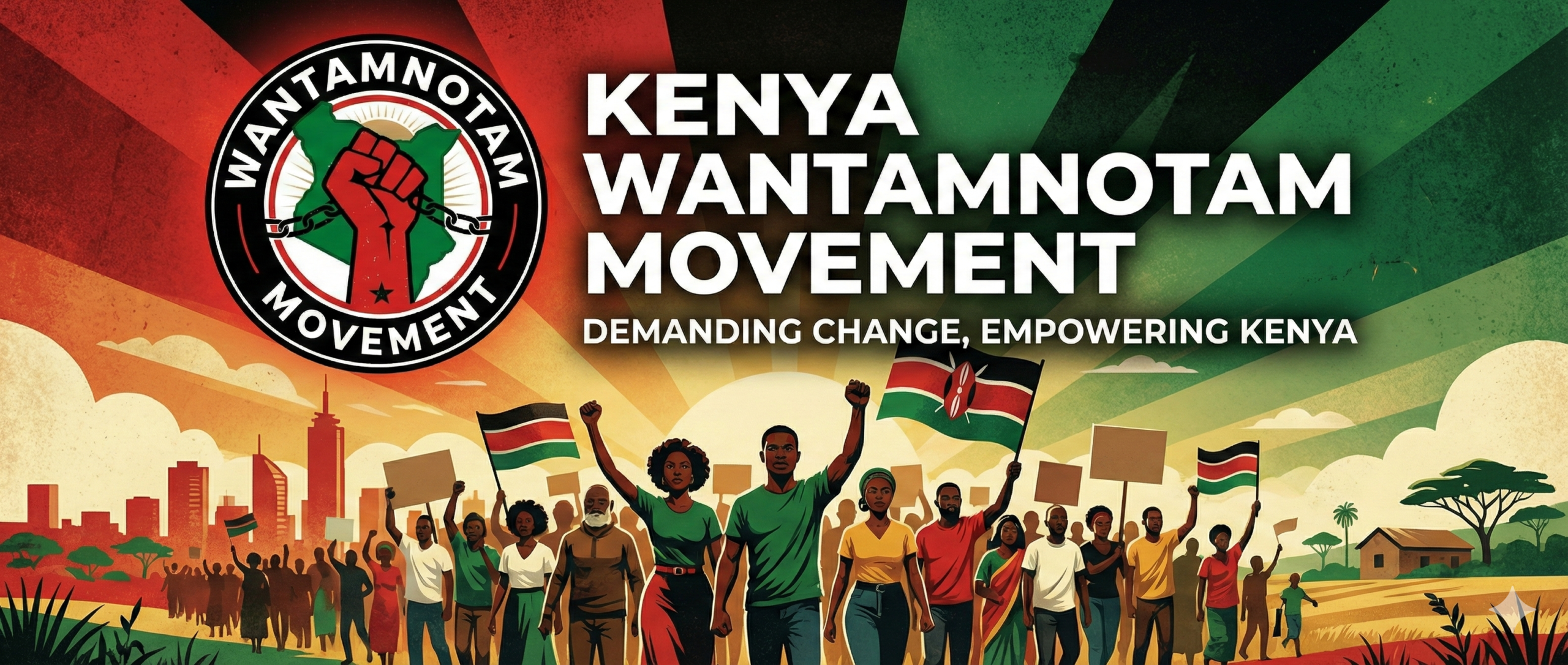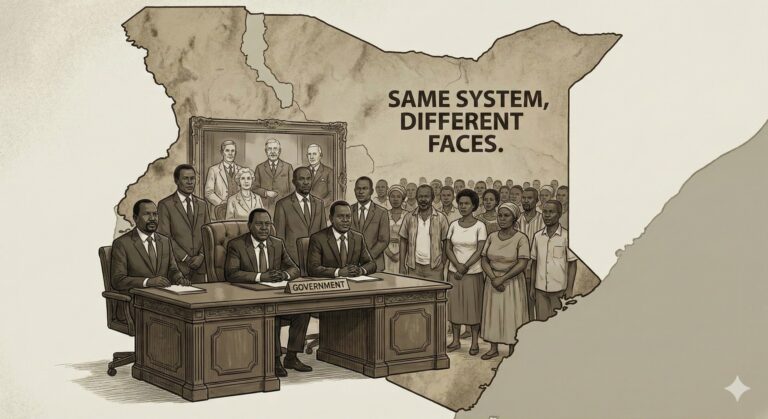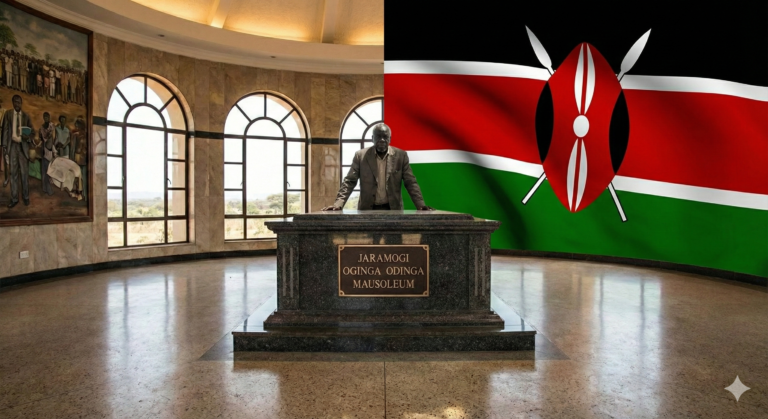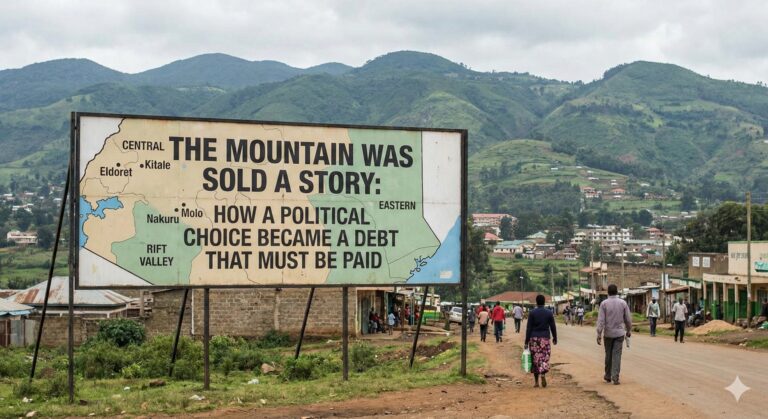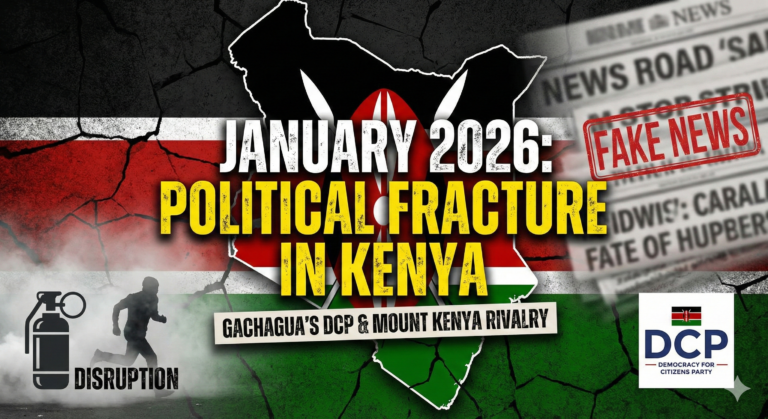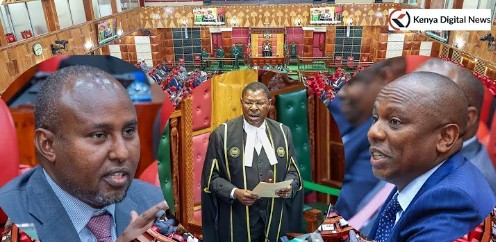
A Suit with No Spine: The Silence of Kenya’s Leadership
In the grand halls of Kenya’s National Assembly and Senate, lawmakers stand polished and pristine. Their collars are starched, their ties crisp, yet their silence speaks louder than their tailored suits. These men and women, who should embody the spirit of the people, are no more than mannequins, standing frozen as unarmed protesters face bullets. A well-cut suit may cloak their bodies, but it cannot disguise their absence of conviction. The recent death of MP Charles Ong’ondo Were, marked by CCTV footage showing a motorcyclist firing at close range, barely makes a ripple in their deliberations. They wear suits as armor, but in truth, they are defenseless—watching as their society crumbles under fear and violence.
Fear on the Streets: Nairobi’s Struggle
Nairobi, usually buzzing with energy, has fallen silent. Shops shutter early. People gather in hushed clusters, eyes darting in every direction. Fear grips the city like a shadow, stretching across neighborhoods. In June 2024, brothers Jamil and Aslam Longton vanished into the streets, only to reappear 32 days later, bruised and broken. Each morning, mothers wake with the hope their children will return safely; each night, they brace for the knock that never comes.
Between June 2024 and early 2025, over 80 people have been abducted, many of them still missing. The government responds with nothing but hollow words—denials, distractions, and empty promises. Police reports chalk up the disappearances to “road accidents” or “mob justice,” refusing to acknowledge the truth. Meanwhile, the silence from Kenya’s lawmakers remains deafening.
Youth Rising: The Voice of a Generation
Kenya’s youth are no longer willing to remain silent. Armed with smartphones, they’ve turned to social media—TikTok, X, Instagram—channeling their frustration into powerful protests. The finance bill, with its harsh taxes, ignites their outrage, but their response is not one of childish tantrums; it is a clever, defiant claim to dignity. Even as the police fire tear gas into their ranks, they respond with memes, videos, and sharp-witted commentary. One senator even famously asked, “How do you teargas a baddie?”
On June 25, 2024, these young voices stormed Parliament. They took the mace, and in the ensuing chaos, 19 people were killed, many by police gunfire. History will remember those still-dressed in suits, their speeches hollow, their minds empty. Their silence will echo in infamy.
Broken Promises and Hollow Reassurances
When the finance bill passed, Kenyans awaited the fury of their leaders. Instead, they were met with bland reassurances. The next morning, President Ruto vetoed the bill, but the damage had already been done. Parliament carried on, debating inconsequential issues while citizens suffered. MP George Koimburi was dragged from a church and left beaten in a coffee field. Meanwhile, Senator Joe Nyutu publicly called for the ICC to investigate, pointing to the growing culture of impunity.
Yet, Parliament convened once more, offering only words while their fellow legislators suffered. The cries for justice go unanswered. The country drifts deeper into decay, with no one willing to step forward and take responsibility.
Tyranny in Plain Clothes
The truth behind the violence is often hidden in plain sight. Bodies surface in rivers and morgues, yet the official reports label them as “accidents” or “victims of mob justice.” Meanwhile, government forces—the so-called “Action Team”—roam the streets, abducting anyone deemed a threat to the regime. The police, tasked with protecting citizens, instead compile spreadsheets of protesters’ names, silencing dissent with calculated precision.
On June 9, 2024, police fired tear gas at activists demanding answers about blogger Albert Ojwang’s death, officially ruled a “head injury” while in custody. Yet, many suspect foul play. This incident, like so many others, is met with the same response—empty speeches, hollow motions, and a broken promise of accountability.
The Elite’s Escape
Amid all this chaos, the wealthy few find comfort in their wealth and privilege. Their passports are ready, their bank accounts secure, and they can escape at a moment’s notice. But for the hawkers, boda-boda drivers, and everyday citizens, there is no escape. They are left to face the brutality of the regime with nowhere to run.
Senators and MPs, shielded by their wealth and status, continue to legislate for their own gain while the country falls apart. As families mourn their lost loved ones and search morgues for answers, the elite sweep the mess under the rug, leaving the cleanup to someone else.
A Silent Visit from Royalty
In late April and May 2024, the Dutch royals visited Kenya. King Willem-Alexander and Queen Maxima were welcomed with ceremony and fanfare, yet in the background, abductions and police crackdowns continued unabated. Activists begged the royals to address the human rights violations taking place, but their visit was marked by silence. Even visiting monarchs, with their royal status, chose to look away.
The message was clear: silence is complicity. And as the royals turned a blind eye, so too did Kenya’s lawmakers, trapped in their suits and their indifference.
Conclusion: The Silence of the Suits
A dog that doesn’t bark sees danger. A suit that never speaks during the darkest times is a lie. Kenya drifts towards decay, and those who could protest are too busy counting the cost of daily survival. The men and women in Parliament must realize this: when the nation’s shield falters, it is not just the poor and the brave protesters who bleed. Even the suits will be stained, though theirs may be washed clean of blood.
The blindfold is not for those who can escape, but as one senator warned, no one is truly safe when public trust disappears. We can continue to watch, or we can demand change. The leaders in their suits have chosen silence, but the people can choose to roar.
CLICK HERE:Listen To WANTAMNOTAM PODCAST AND TAKE ACTION
